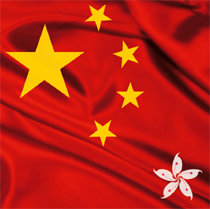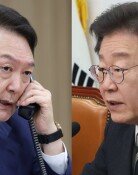Hong Kong version of burning books on the Chinese classics
Hong Kong version of burning books on the Chinese classics
Posted June. 06, 2018 07:39,
Updated June. 06, 2018 07:39

In Hong Kong, independent book stores that deal with books that have strong political color are known as “Second-story book stores.” The origin of the second-story book stores comes from small book stores secretly selling prohibited books on the second floor of a building at the time. Recently, mainland China dominated the distribution network as it regarded Hong Kong bookstores as a hideout for spreading “seditious books” with an anti-Chinese sentiment. The central government's liaison office, a Chinese government agency under the Hong Kong Special Administrative Region of the People's Republic of China, secured the ownership right of United Publishing Group of Hong Kong, which owns 53 bookstores including large book store branches within Hong Kong, and 30 publishing companies.
There was a prelude to the Hong Kong version of burning books on the Chinese classics and burying Confucian scholars alive. This was the so-called “mystery of bookstore officials going missing.” It was a case where five people including the manager and employees of the “Tongrowan,” a second-story bookstore that sold books that made mainland China uncomfortable such as “The Women of Xi Jinping” and “Xi Jinping, the Dream of a 20-Year Seizure of Power.” It was later revealed that these people were taken to the public security bureau and investigated. This should not have happened under the principle of “one country two regimes system” that China promised when the United Kingdom returned Hong Kong in 1997.
Socialist China and capitalist Hong Kong had seemed to get along smoothly. The two countries, however, faced a crisis as China’s national power emerged conspicuously. Interference and control of China is also coming out in the open. Chinese President Xi Jinping emphasized numerous times after coming into power, saying, “The period where we realize the Chinese dream of overcoming the ordeal of giving away our own territory to Western powers as a result of lagging behind modernization is coming closer.” This is a natural process for Xi, who regarded Hong Kong as a milestone area to announce the revival of the Chinese nation.
The people of Hong Kong, who remember its golden ages, feel a sense of serious crisis with Mr. Xi’s policy of “Chinese unity.” It is not just Hong Kong people who are pitiful of Hong Kong losing its identity as a place where the East and West coexist. It is just as bitter for numerous numbers of “Hong Kong movie kids” in Asia, who are no longer seen in movies invested by Chinese capital including actors Chow Yun Fat, Leung Chiu Wai and Andy Lau, who are on the Chinese “black list” for participating in the “umbrella revolution,” a democratization protest of Hong Kong in 2014.
Headline News
- Med professors announce intention to leave hospitals starting Thursday
- Bridge honoring Sgt. Moon Jae-sik unveiled in Pennsylvania
- Chief of Staff Chung tells presidential secretaries to stay away from politics
- US FTC bans noncompete agreements
- N. Korea launches cyberattacks on S. Korea's defense companies







